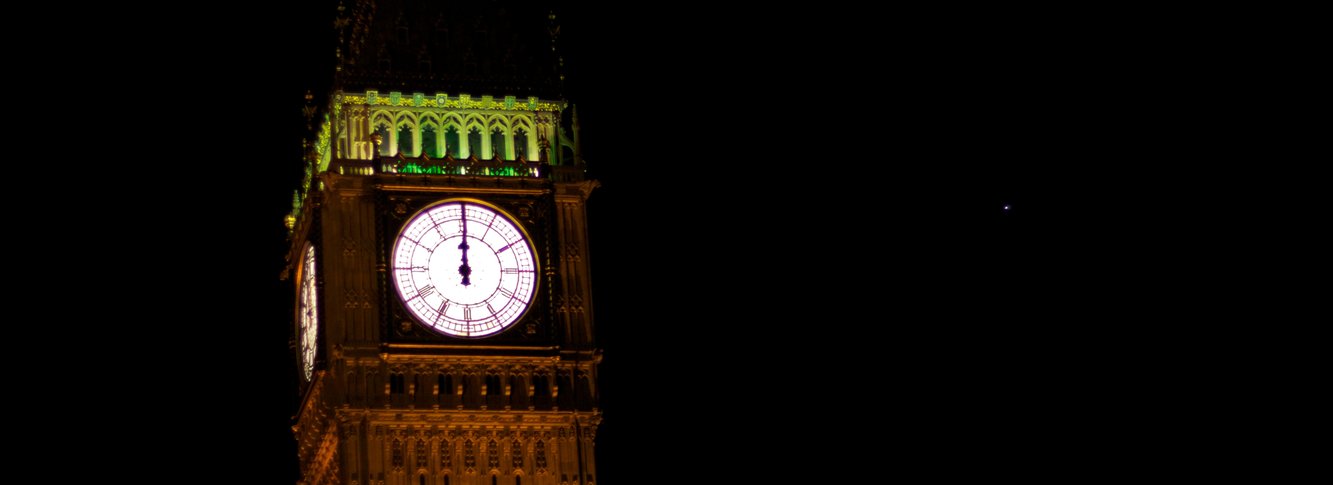| 20 mins read
What exactly is Boris Johnson being investigated for? Put simply, the purpose of the investigation is to determine the extent to which the House of Commons may have been misled over his behaviour during his tenure as Prime Minister vis-à-vis lockdown parties in Number 10. Specifically, investigation concerns whether any potential attempt to mislead the House may have occurred and whether it may be considered contempt of Parliament. The enormity of the potential offence and its capacity to undermine the Commons as a functioning institution is considerable, as is whether any misleading was a purposeful act or the result of reckless language.
In specific terms, the questions concern his account of events regarding the so-called ‘partygate’ scandal. Namely, whether he knowingly broke the rules set which required all to follow laws linked to the tier systems prohibiting social gatherings (both at home and within workplaces). These rules were legally enforced, and specifically prevented workplace gatherings of the kind Johnson is accused of attending. The findings of the Second Permanent Secretary, Sue Gray into such alleged gatherings was the key report into those allegations. The focus of the Privileges Committee, however, would be on Johnson’s comments to the Commons rather than the acts themselves.
A further issue concerns Johnson’s verbal interpretation of those events to the Commons. As he explained the events to the Commons, the questions subsequently arose whether his statements were accurate or misleading. The statements sought to highlight his enthusiasm for following the laws, whilst critics suggest they were either recklessly phrased or deliberately misleading. This distinction is a key issue that the Committee seeks to determine as it contextualises the level of potential offense, and the severity of redress. It is worth noting, however that be it reckless or deliberate, neither judgement would place Johnson into a positive constitutional, political, or legal light.
The Committee
The Commons Privileges Committee is a body that should not be underestimated given it has the capacity to enact career-damaging/ending sanctions. Indeed, in the event Johnson finds himself on the receiving end of harsh judgements, then they have the capacity to initiate processes that might suspend him from the Commons. A suspension exceeding ten days carries with it the additional penalty of a by-election in his constituency of Uxbridge and South Ruislip. Thus, the investigation is not a small matter that Johnson can ignore in the hope of it fading away. Rather, should he have any hopes of a future political career, then the outcome of the investigation has the potential to derail them. Indeed, regardless of the verdict, there is potential for damage here which would be problematic for any ambitious Parliamentarian, thus how he engages with the Committee and the seriousness which he recognizes its remit will impact on his capacity to emerge from it in a credible position.
Needless to say, supporters of Johnson have sought to portray the Committee as simply a political rather than constitutional body that is seeking to undermine his future and attack the Conservatives. Critical news outlets have even gone so far as to describe it as a ‘Kangaroo Court’. However, whilst the Committee is cross-party comprised of seven MPs, the Conservatives are in the majority, having four MPs represent the Party. Also on the Committee are two Labour MPs, and one SNP MP. This is designed to reflect the representative composition of the Commons, thereby seeking to demonstrate a clear reflective composition of the Chamber itself. This composition appears at first glance to favour Johnson, given the Conservative dominance, but this is not to be taken for granted.
Despite this, the suggestions of the Committee acting more with party interests rather than institutional are kept alive in part by the occupancy of the Chair of the group. The Chair comes from the main opposition, thereby gifting them a significant position to determine the interpretation of the evidence which feeds into the perception of a left-wing, anti-Boris bias. Needless to say, this is refuted as a claim to discredit the Committee so that any negative verdict can be politically disregarded. Needless to say there has also been a degree of controversy over who the Chair is. This would have been Chris Bryant, however following his voluntary withdrawal from the position (on the grounds that his prior statements to the Commons curtailed his capacity for objective judgement), Harriet Harman was unanimously elected as the Chair instead. Harman was dubbed the ‘Mother of the House’ by former Prime Minister Theresa May for being ‘a great advocate for increasing the number of women in Parliament’ because of her length of service to the Commons, having been elected in 1982. Thus, whilst the Conservatives enjoy the dominant majority position on the Committee, the Labour Party has occupancy of a significant position vis-à-vis the Chair, who is also a well-respected figure in the Commons.
Boris Johnson’s Evidence to the Committee
Johnson has the opportunity to submit both written and oral testimony to the Committee. Here, Johnson has called for his evidence to be published as soon as possible, however the process of verification of the evidence necessitates legal reviews before it can be placed into the public arena. This is also to ensure any redactions are enacted for the protection of witnesses. The written evidence will be key when the Committee makes its judgement, which will also inform the oral questions to the former during a five-hour sitting that occurred on 22 March 2023. Here, the Committee asked Johnson about the evidence provided, whilst also asking more generalized questions about the events in Downing Street.
Johnson employed his trademark ‘amateurish style’ consistent with his wider persona whilst addressing the committee. He also arrived several minutes late, as ready possible to defend what some commentators have already considered to be indefensible outlined above. The former Prime Minister was clearly prepared for conflict as evident in his blunt rhetorical tones, operationalized to emphasize his frustration with the committee. His blunt and frequently confrontational persona would soon give way to a more placid performance as the exchanges between himself and committee members commenced.
The opening statement constructed by Johnson and his legal team was intended to showcase awareness of the mistakes that had been made in Downing Street during the pandemic period, the significance of which Johnson had seemingly underestimated at the time. The contents of the statement were clearly an attempt by Johnson to give off the persona of an innocent bystander who naively believed that the actions of his staff at the time were inside the rules he and officials in Number 10 constructed. The opening statement reflected the core characteristics of an individual who seemed unable to understand or comprehend the consequences of the actions investigated by the committee, whether intentionally or not. This was evidenced in the disclosure that he was ‘deeply shocked’ when fines were issued to him and his staff by the Metropolitan Police.
Again drawing on his persona and the existence of an assumed supportive audience-base beyond the committee, he endeavored to demonstrate his own experience with the virus as an instrument of his defense. His own experience with the virus proved nearly fatal, which was used as evidence of how seriously he saw the rules and how implausible it was that he would intentionally mislead the Commons on such matters as its severity. This poorly operationalised attempt by Johnson at bolstering his own credibility and inducing sympathetic emotions from the committee failed the most basic test of the ancient Aristotelian modes of persuasion vis-à-vis ethos (character and credibility) pathos (emotional engagement) and logos (facts and logic). The absence of such evidence suggests Johnson’s performance may have been less prepared for the scrutiny of the panel then hitherto he may have assumed.
His ‘innocent actor’ persona would soon be deconstructed as his defense was methodically scrutinized by (former) friends and (longstanding) foes on the committee. The former Prime Minister’s claim that his statements to the Commons were ‘made in good faith’ was met with fierce skepticism by his former supporter, Sir Bernard Jenkins. When the first questions were asked at Johnson by Sir Bernard, the former Prime Minister looked baffled and confused, mummering to a member of his legal team about the intricacies of the very rules he himself set. From observation, it was unclear whether he was using such mummers to undermine the questioning of Sir Bernard, or whether Johnson was using such mannerisms to demonstrate his own confusion around the guidelines. Nevertheless, the method of defection used failed to raise any hopes of exoneration, rather it showcased an individual who was willing to downgrade their own cognitive abilities in an attempt to exonerate themselves from responsibility.
He relentlessly attempted to defend his misleading statements to the Commons through recalling the enormous efforts made in Number 10 at the time to stick to the rules. This, he stated influenced his own statement to the Commons on December 1st where he rejected the notion that jamborees were taking place in Downing Street during the pandemic. This was another attempt by Johnson to present himself as an innocent bystander who was naively indoctrinated to such fictional depictions of life in Downing Street during lockdown. Indeed, the culprits of such an indoctrination were revealed by the process to be his own special advisors who supposedly wrongly told Johnson that the rules were abided by at all times. For this characterization, Johnson presented himself as overly dependent on others to tell him what was inside and outside the rules he imposed on the rest of the population.
The rudimentary nature of Johnson’s responses to Sir Bernard’s line of questioning would continue when Johnson was asked about an alleged joke he told around the lack of social distancing at the 13th November 2020 gathering. Johnson responded with two meters distance from the alleged statement, stating that it was ‘unlikely’ that he would have said those words. Yet again, Johnson demeaned his own cognitive abilities to recall the details of his words at this event. He attempted to hold onto his credibility (ethos) here, claiming that the need for social distancing was very much on his mind at the time, and was reflected in the sense of exasperation of Sir Bernard’s face at the end of his time questioning.
The next committee member examined the gathering on the 19th June 2020 for Johnson’s birthday and the 20th May 2020 gathering in the garden at Downing Street. Labour MP, Yvonne Fovargue felt the need to check once again Johnson’s understanding of the rules before proceeding with her questioning, which placed restrictions on two or more people meeting up during this time period, and only when ‘absolutely necessary should participants attend meetings’ in the workplace. Her first line of questioning was about the event where he met with colleagues and his interior designer to celebrate. Once again, Johnson constructed an image of an innocent bystander, who wrongly stumbled into an environment where illegal activities were taking place. Fovargue moved on abruptly to the earlier event that took place in the confines of the garden at Number 10. Here, Johnson was questioned on his awareness of an email sent out to 200 staff members to ‘bring their own booze’ to the garden. Johnson abruptly replied ‘no’, reflecting back on his previous defense that he felt it was appropriate to thank staff members who were working immensely hard during the pandemic. Yet, this defense was soon deconstructed with numerous officials claiming that anxieties were raised around the event, the ‘optics’ according to Lee Cain, former Director of Communications at Downing Street. Johnson sought to bat this off, claiming once again that no concerns were raised by any member of staff. Johnson’s rhetorical tone became gradually angrier, stumbling over his words and a one point having to be interrupted by the Chair, who pleaded with him to answer the questions asked. Johnson managed to regain his calm façade clutching his hands together and providing a stern look at his questioner.
The SNP member of the committee, Allan Dorans MP continued a similar line of questioning, with Johnson becoming increasingly exacerbated as he sat shuffling back and forth at the back of the room. Johnson appeared to be fluctuating between his intended demeanor and his frustrated self, presenting himself as a calm collected individual one moment and then a disgruntled former Prime Minister the next. The continuum in Johnson’s defense was that he felt it was essential that he thanked staff for the work that they had been doing, responding to the SNP member that it was ‘customary to say farewell to people in this country with a toast’, denying any activities that justified a fixed penalty notice. This belies the experiences of many thousands who missed funerals, weddings, and other key life events because of the COVID restrictions Johnson appeared willing to break.
The following lines of questioning by Andy Carter MP and then Alberto Costa MP received similar lines of defense from Johnson which can be summarized as ‘no one told me this was illegal’ and that ‘all members of staff in Downing Street were making a huge effort to stick to the rules’. This was levelled at committee members as the central determinants of his misleading remarks in the House of Commons.
The final questions were levelled at Johnson by Charles Walker MP, who took an alternative line of questioning by commenting on the article written by Conservative Post who claimed that the committee was operationalizing a ‘Great British stich up’. Johnson responded to such matters by agreeing that in no way was the statements made by the publication correct. The ‘kangaroo court’ view of Johnson supporters prior to the committee taking place was regretted by Johnson. Nevertheless he dismantled his own previous statements to suggest that if the committee was to find him in ‘contempt of Parliament’ then he would deem it to be unfair.
The Johnson evidence provided the immediate audience with a clear display of parliamentary theatre with the twists and turns reflective of a youthful adaption of a Shakespearian tragedy. The main character in the tragedy, Boris Johnson, attempted to operationalize the Aristotelian modes of persuasion of ethos and pathos to defend the legally indefensible. At times, Johnson’s defense was robotic, coded to demonstrate his commitment to truth. Nevertheless, the cool façade that Johnson attempted to maintain throughout the proceedings faltered frequently in their delivery, only maintained at times when the questioning of the committee was slightly more generous.
A possible win for Johnson from this committee is that there was nothing new disclosed, the members of the committee failed to push Johnson to new lows and in turn, and only highlighted what audiences already know. Whether Johnson is indeed honest in his recollections about unintentionally misleading Parliament is arguably irrelevant to the millions of people across the country who made huge sacrifices to protect their families, friends and fellow citizens.
Conclusions
Boris Johnson’s performance at the committee was firmly defensive. However, despite this, following the submission of all evidence, the Committee will then move to produce a verdict. As mentioned in the opening sections, this verdict is decided by the cross-party grouping as a way of seeking to represent the Commons equally. The verdict will determine whether they believe Johnson misled the Commons (be it deliberately or accidentally – the first implying malicious intent, the second implying incompetence). The report of the Committee is then sent to the Commons, who in turn vote on the report in order to express a wider view of the evidence. It is interesting to note that the vote can be treated as any other in the Commons, be it a whipped vote, or a free-vote. In this instance, Rishi Sunak has confirmed that MPs will vote freely as in line with the convention in the Commons that votes relating to conduct have no direction from the Party leadership on a particular preference. (This is despite the breaking of the convention by the Johnson government in November 2021 regarding the conduct of Owen Paterson). The eventual verdict (be it in his favour, or be it in his disfavour) will determine the extent to which Johnson will enjoy a future political career, and what form that may take.








